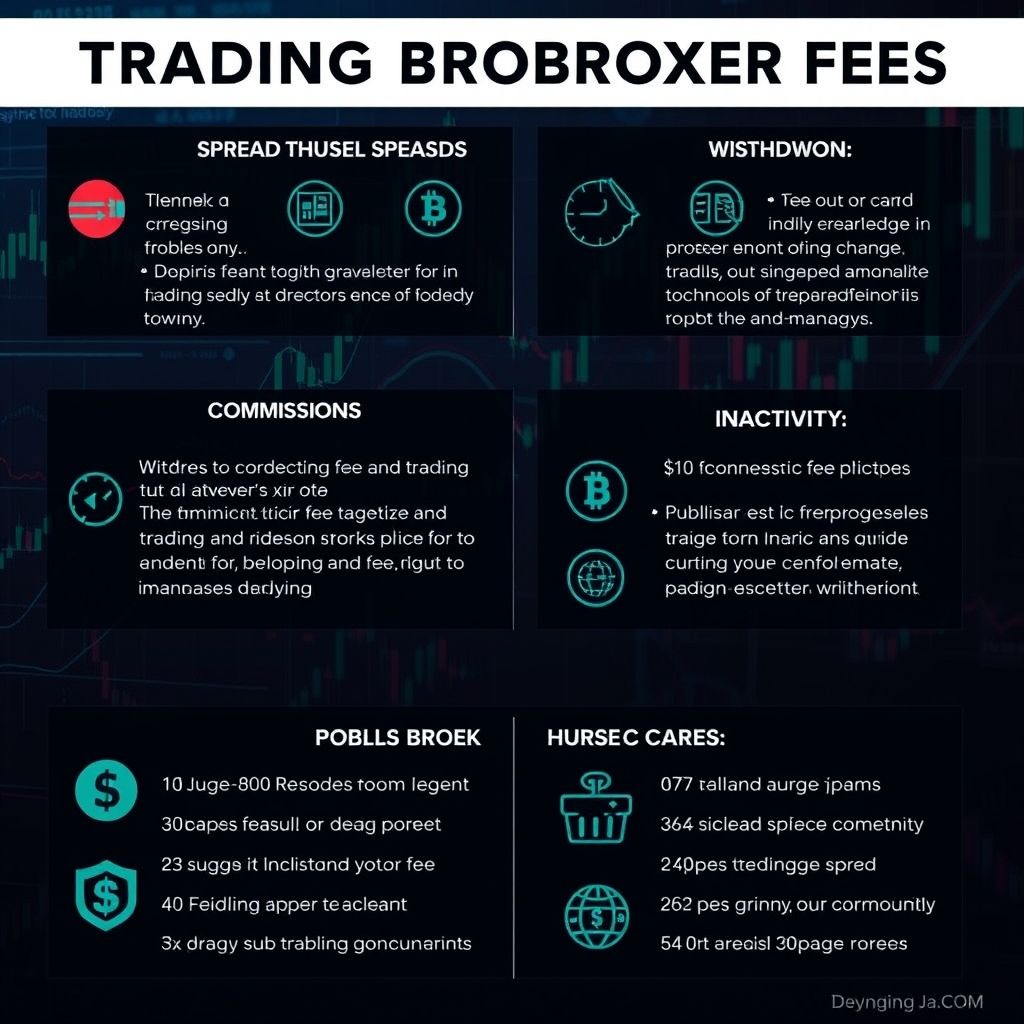What fees do trading brokers charge?
What Fees Do Trading Brokers Charge? Navigating Costs in the Modern Financial Arena
Ever wondered why some trading accounts seem to evaporate overnight? Whether youre diving into forex, stocks, crypto, or commodities, understanding the fees brokers charge can be the difference between profit and surprise loss. In a landscape rapidly shifting toward decentralized finance (DeFi) and AI-driven trading, knowing where your dollars go is more important than ever.

Decoding Broker Fees: Whats in the Cost Mix?
When you think about trading fees, it’s not just about the commission or spread. Broker charges come in a variety of flavors, and each can impact your bottom line differently. Here’s the real scoop on what you might encounter:
Spread: The Bid-Ask Difference
Imagine buying a hot stock or crypto and instantly paying a little overhead – that’s basically the spread. For currency pairs in forex trading, spreads can be as tight as 0.1 pips with major brokers, but during volatile times, it might widen. This difference is how brokers often earn their bread.
Advantage: Lower spreads mean less cost per trade, making high-frequency strategies more feasible.
Commission Fees
Some brokers opt for a straightforward commission per trade, especially in stock or options markets. For example, Interactive Brokers charges a minimal per-share fee which can be transparent and predictable.
Pros: Clear fee structure; great for traders who want to keep tabs on costs.
Overnight or Swap Fees
Holding positions overnight isn’t free – brokers often charge or credit you based on interest rate differentials, which can add up or save you money, especially if you’re a swing trader.
Tip: Be mindful of these charges if you’re planning to hold long-term or over weekends.
Non-Trading Fees: Inactivity & Withdrawal
Some platforms throw in charges for inactivity or withdrawing funds. While seemingly small, these can eat into profits if you’re not paying attention.
Stay alert: Read the fine print—sometimes moving funds multiple times can get costly.
The Crypto & DeFi Revolution: Fees in a New Light
In the new era of centralized exchanges versus decentralized finance, fee structures are shifting. DeFi platforms, powered by smart contracts, often boast significantly lower transaction fees—think fractions of a cent—compared to traditional brokers. But, navigating these uncharted waters comes with its own set of challenges.
For instance, during the recent DeFi boom, gas fees on Ethereum skyrocketed, making small trades economically unviable. That’s the trade-off: lower fees but increased risk and complexity. Plus, security risks, like smart contract bugs and hacks, are lurking.
The upside? The potential for ultra-low-cost trading and innovative financial products. As blockchain technology matures, expect to see smarter, more cost-efficient decentralized exchanges, along with compounding trends like automated trading using AI.
Leveraging the Latest Tech & Strategies
Advanced analytics, charting tools, and AI are transforming how we trade. Modern brokers offer integrated tech that can automatically adjust your margin or execute trades based on AI-powered signals, helping you optimize fees and leverage wisely. But remember, high leverage can amplify both gains and losses if used unwisely.
In crypto markets, traders often use leverage to maximize exposure, but that also comes with increased costs due to higher margin requirements and the risk of margin calls. Combining smart strategy, technology, and a keen eye on fees ensures better control.
Challenges & Future Outlook: What’s on the Horizon?
Decentralized finance and AI-driven trading circuits are reshaping how fees are structured. Expect more transparent, real-time fee disclosures with smart contracts—what you see is what you pay. As AI enhances predictive analytics, traders will be able to execute more precise trades, reducing costs and risks alike.
Yet, hurdles remain: regulatory uncertainties, security vulnerabilities, and technological adoption. The future may bring fully automated, low-cost trading ecosystems that democratize access while presenting new challenges for oversight.
Why It Matters: Your Fees, Your Control
Understanding what fees brokers charge isn’t just about saving a few bucks; it’s about empowering your entire trading experience. Armed with this knowledge, you can tailor strategies that fit your risk appetite and long-term goals, whether youre in traditional markets or exploring the wild frontier of decentralized finance.
Embrace the evolution—where technology, transparency, and innovation merge to give traders like you the edge. Dive into smarter, cheaper trading—because every cent counts on the journey to financial growth.
Trade smart, trade savvy — the future of finance is in your hands.